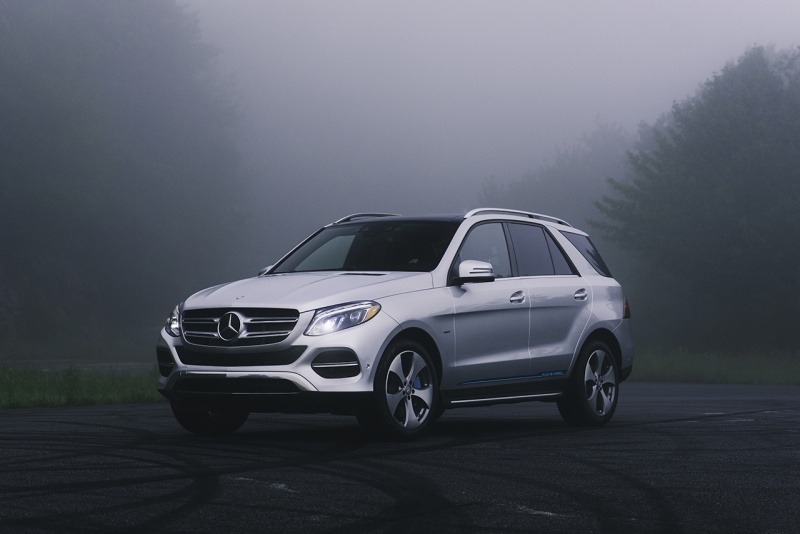Search the Community
Showing results for tags 'trade war'.
-
The project of a trade war between the U.S. and China (along with the European Union) has many automakers on edge. Some are beginning to speak out about the possible dangers it may bring. Mercedes-Benz's parent company, Diamler AG announced yesterday that its full-year earnings will be slightly lower than last year. Their reasoning comes down to consumers in China buying fewer SUVs that are imported from the U.S. Most of Mercedes-Benz SUVs are built in Alabama. “Remember, for those following from a Trump/global free trade perspective, this is now a German car maker, warning on the profits coming from their Alabama-made SUVs, which are then sold/exported into China –- a complicated situation indeed!!” wrote Evercore ISI analyst Arndt Ellinghorst. According to Bloomberg, shares in Diamler dropped 4.4 percent on this announcement. Meanwhile, Volvo Cars CEO Hakan Samuelsson said the trade war could affect plans in the U.S. Speaking at the opening of the Swedish automaker's new assembly plant in South Carolina, Samuelsson told Bloomberg that Volvo would have to limit the number of models it sells due to threat of a 25 percent tariff on imported vehicles. “I would have less models to choose from and they would cost more -- that would be the consequence. Shorter menu and higher prices -- not a very good restaurant,” said Samuelsson. The factory in South Carolina will provide a small relief for Volvo if tariffs do go into place. Small is the key word as LMC Automotive estimates 87 percent of the vehicles Volvo sells in the U.S. next year will come from other places - Sweden and China. Samuelsson also warned that the trade dispute could mess up plans to create up to 4,000 new jobs at the new plant. "If you have trade barriers and restrictions, we cannot create as many jobs as we are planning to," explained Samuelsson. "We want to export and if suddenly China and Europe have very high barriers, it would be impossible. Then you have to build the cars there. And then all cars will be more expensive, you have to invest more tooling and have every model in every country. That's against all the logic of modern economies that trade with each other." Source: Bloomberg, (2), Reuters View full article
-

Diamler and Volvo Begin Bracing For A Possible Trade War
William Maley posted an article in Automotive Industry
The project of a trade war between the U.S. and China (along with the European Union) has many automakers on edge. Some are beginning to speak out about the possible dangers it may bring. Mercedes-Benz's parent company, Diamler AG announced yesterday that its full-year earnings will be slightly lower than last year. Their reasoning comes down to consumers in China buying fewer SUVs that are imported from the U.S. Most of Mercedes-Benz SUVs are built in Alabama. “Remember, for those following from a Trump/global free trade perspective, this is now a German car maker, warning on the profits coming from their Alabama-made SUVs, which are then sold/exported into China –- a complicated situation indeed!!” wrote Evercore ISI analyst Arndt Ellinghorst. According to Bloomberg, shares in Diamler dropped 4.4 percent on this announcement. Meanwhile, Volvo Cars CEO Hakan Samuelsson said the trade war could affect plans in the U.S. Speaking at the opening of the Swedish automaker's new assembly plant in South Carolina, Samuelsson told Bloomberg that Volvo would have to limit the number of models it sells due to threat of a 25 percent tariff on imported vehicles. “I would have less models to choose from and they would cost more -- that would be the consequence. Shorter menu and higher prices -- not a very good restaurant,” said Samuelsson. The factory in South Carolina will provide a small relief for Volvo if tariffs do go into place. Small is the key word as LMC Automotive estimates 87 percent of the vehicles Volvo sells in the U.S. next year will come from other places - Sweden and China. Samuelsson also warned that the trade dispute could mess up plans to create up to 4,000 new jobs at the new plant. "If you have trade barriers and restrictions, we cannot create as many jobs as we are planning to," explained Samuelsson. "We want to export and if suddenly China and Europe have very high barriers, it would be impossible. Then you have to build the cars there. And then all cars will be more expensive, you have to invest more tooling and have every model in every country. That's against all the logic of modern economies that trade with each other." Source: Bloomberg, (2), Reuters



